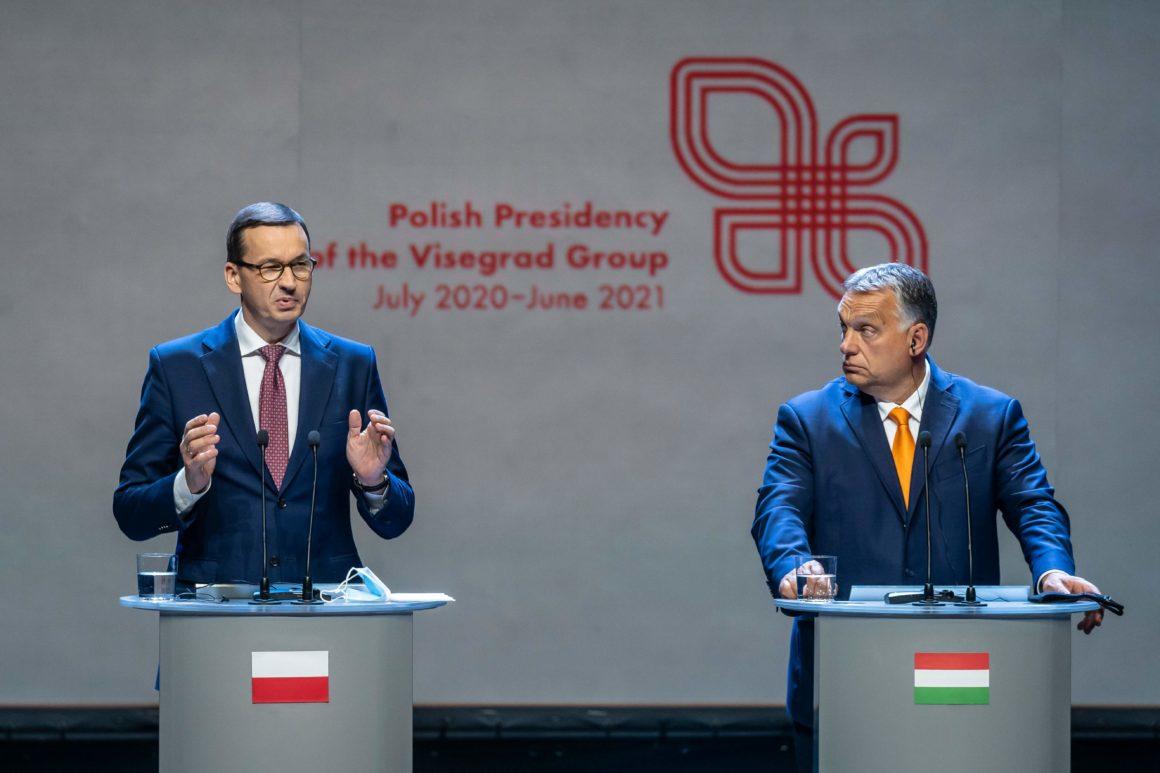EU Mulls Sidelining Hungary & Poland Altogether On Blocked Recovery Fund
Tyler Durden
Wed, 12/02/2020 – 11:04
The European Union is appearing less and less a “union” of willing participants (nothing at all new). And apparently its vaunted democratic processes are alterable and expendable simply if things don’t go the way of the powerful technocrats in charge in Brussels.
The major development and prime case in point emerging Wednesday: “Brussels is considering ways to push ahead with the creation of the EU’s Covid-19 recovery fund without the participation of Hungary and Poland, a senior commission official has said, piling pressure on the two countries to drop their veto over the union’s upcoming budget.”

But the purpose of the veto is debate and achieving consensus, while avoiding member nations being force-fed dictates against their will. But “force-feeding” is long the story of the EU.
The senior commission official said further according to FT:
The official said the EU’s 25 member states could proceed with setting up an envisaged €750bn recovery fund next year to act as a “bridge” until Hungary and Poland drop a veto over the bloc’s overall €1.8tn budget and recovery package.
This central irony shouldn’t be missed: it’s the EU that has long charged the current resistors to passing the EU budget and COVID relief package, namely Poland and Hungary, with “democratic backsliding”.
From the start of the two countries vowing to block the budget together in order to torpedo key conditions which they see as “blackmail” – as Hungary’s Viktor Orbán previously put it – there’s been growing anger and fear among other members that the union will be held hostage by a few obstructionists content to pick up their ball and go home.
Meanwhile, look which “billionaire philanthropist” is leading the charge…
The veto of the European Union’s seven-year budget and €750 billion recovery fund by Hungary and Poland directly threatens the rule of law – and thus the bloc’s future, writes @georgesoros. https://t.co/yxgV3knQZc
— Project Syndicate (@ProSyn) November 26, 2020
Already under formal EU probes, both countries have sensed the latest attempts to link budget and stimulus packages to conformity with EU consensus ideology – or what Brussels touts as ‘rule of law’ – is yet another attempt to legally impose external values and directives.
“Diplomats hope Hungary and Poland can be convinced to drop their objections and throw their weight behind the recovery fund that was agreed by all member states in a July summit,” FT continues.
Citing Rabobank’s analysis this is precisely the scenario we featured yesterday…
* * *
A different scenario: Bypassing obstructive states
Technically it seems possible to create a separate Recovery and Resilience Fund (the largest chunk of the total EUR750bn new crisis recovery instrument) among willing Member States, outside the MFF. It could be based on an intergovernmental treaty between all EU Member States except for Poland and Hungary – and possibly Slovenia. It might persuade Poland and Hungary to come around on the MFF given their needs for EU funds and weakened bargaining position, but could also reach the opposite, not for economic reasons but by feeding emotions of anger and frustration. We don’t think this scenario is viable in the foreseeable future, for several reasons. First, it would push the EU into uncharted waters and take months at least to talk things through, politically and legally, prior to implementing it. Also because it would likely require paid-in capital from participating Member States. Second, it could make it more difficult to solve the deadlock on the MFF and ORD, which would harm those Member States which depend more on regular budget funds than recovery funds and see budget rebates withheld from certain Member States. Third, it would underscore a failure of EU cooperation, with accompanying risks. That said, as time passes, this option might still become viable in the eyes of most Member States, as the EU would not want to be held hostage by (a few) obstructing Member States.
via ZeroHedge News https://ift.tt/2VuPzYx Tyler Durden